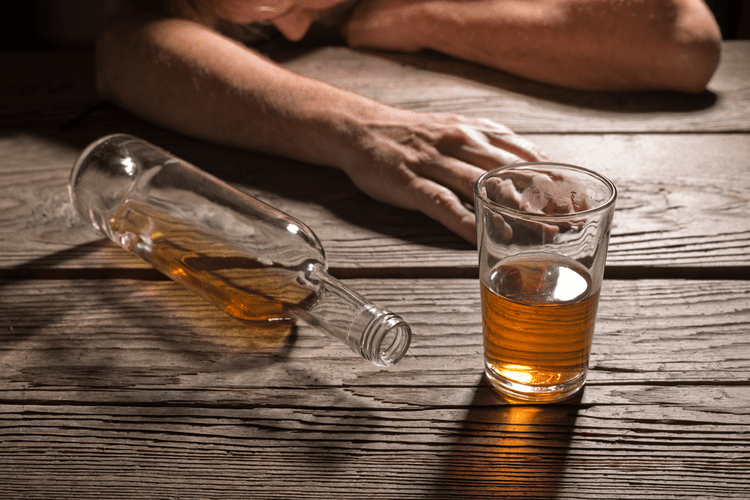Individual therapy offers people the opportunity to examine their thoughts, behaviors, and motivations. It is a critical component of any holistic treatment and recovery program. Individual therapy is often part of a comprehensive treatment https://thealabamadigest.com/top-5-advantages-of-staying-in-a-sober-living-house/ program and an aftercare plan. People engage in therapy in both inpatient and outpatient rehab programs. Dialectical behavioral therapy can help people manage their emotions, reduce harmful behaviors, and improve relationships with others.
Explore your addiction treatment options

Another vital element of care during recovery is relapse prevention—learning specific strategies for dealing with cravings, stress, setbacks, difficult situations, and other predictable challenges. The endpoint is voluntary control over use and reintegration into the roles and responsibilities of society. Shortly after substance use is stopped, people may experience withdrawal, the onset of unpleasant physical and psychological symptoms —from irritability to shakiness to nausea; delirium and seizures in severe cases. There are no lab tests that define recovery and no universally agreed-on definition of recovery. For many experts, the key components of addictive disorder are compulsive drug use that continues despite detrimental consequences, and the development of cravings with the inability to control use.
Cope with drug cravings
If you are able to find healthy replacements instead of turning to alcohol, you will develop positive coping strategies to strengthen your health and well-being, which aid in prevention. We need to accept ourselves, but also acknowledge that character defects have led us to harm ourselves and wrong others – then, we need to ready ourselves to have a higher power help us remove these defects. To do so, its crucial to not only explore these character defects and the actions or behaviors they led to, but also become humble enough to admit that there are defects and that you can’t rectify them on your own. Along with admitting we need help, this is one of the hardest steps of this process.
Reducing Relapse Risk: Building a Supportive Environment
In communities throughout the U.S. and around the world, churches often donate space for Twelve Step meetings. You can also typically find Twelve Step meetings at schools, community centers, health care centers or addiction treatment centers. It’s now up to us to instill hope in others who may be struggling with what we’ve gone through in the past.
- However, recovery can be thought of in 4 primary phases that include withdrawal, early, middle, and late phases of recovery.
- The risk of dying from an overdose is extremely high if you have been through withdrawal because your tolerance of the drug will be much lower than it was before you quit.
- At Infinite Recovery, our goal is to provide constant evaluation and support in the least restrictive environment possible.
- Neuroscientist Adi Jaffe, Ph.D., who himself recovered from addiction, outlines five steps.
- Researchers have identified and mapped out five stages of change, and they can be used as a kind of recovery GPS—a guide to determine where anyone may be in the process of recovery.
- If you are having a hard time picturing the area, the First Step center is just southeast of the Kasold Curve — where 31st Street turns into Kasold Drive — and the building used to serve as the Lakeview Nursing Home.
Alcoholics Anonymous (AA) originated the idea for the 12-Step model in 1938, when founder Bill Wilson wrote out the ideas that had been developing through his experience with and vision of alcoholism. He wrote about the positive effects experienced when people struggling with alcoholism shared their stories with one another. There is no set timeline for how long it will take someone to go through the steps.

- This June, approximately 150 motorcycles will thunder down Route 9W in Saugerties, New York, for Ryan’s Ride for Recovery.
- For instance, they may find a greater sense of community by joining a spiritual or religious group.
- Individuals grappling with substance use disorder (SUD) and addiction often face complex challenges, necessitating a multifaceted approach for resolution.
- When this happens, it can be useful to stay with the urge until it passes.
- According to one model of behavior change known as the transtheoretical model, making any kind of change involves a process that starts with pre-contemplation and moves into contemplation.
Yet one more acronym captures the skills people actually deploy to successfully navigate the tricky terrain of early recovery. When, for example, cravings hit, a helpful strategy is to self-negotiate a delay of use. This is a cognitive maneuver that doesn’t deny the possibility of future use, but rather, seeks to delay it. The example set by others who have successfully traversed the recovery terrain can instill hope and optimism, another active recovery ingredient. Actively seeking input from peers on the path to recovery, a clinician, or both can be invaluable early on. No matter the pathway to recovery, the mechanisms by which people change are the same.
- Simply memorizing them without putting in any effort to work them isn’t effective; it’s important to learn how to live out these steps.
- Also, talking about craving often helps to discharge and relieve the feeling and will help restore honesty in your relationship.
- Our content does not constitute a medical or psychological consultation.
- You can learn to manage your problems without falling back on your addiction.
Researchers have identified and mapped out five stages of change, and they can be used as a kind of recovery GPS—a guide to determine where anyone may be in the process of recovery. If you have an underlying mental health problem, such as anxiety or depression, it could worsen during the withdrawal phase. Healthcare providers can be very supportive Top 5 Advantages of Staying in a Sober Living House and helpful while navigating these challenges. For alcohol and drug addictions, it is a good idea to talk to a doctor or local drug clinic about whether you need medical help in quitting. There are options for medications to help alleviate withdrawal symptoms. In some cases, you may need medical supervision during the detox process.






